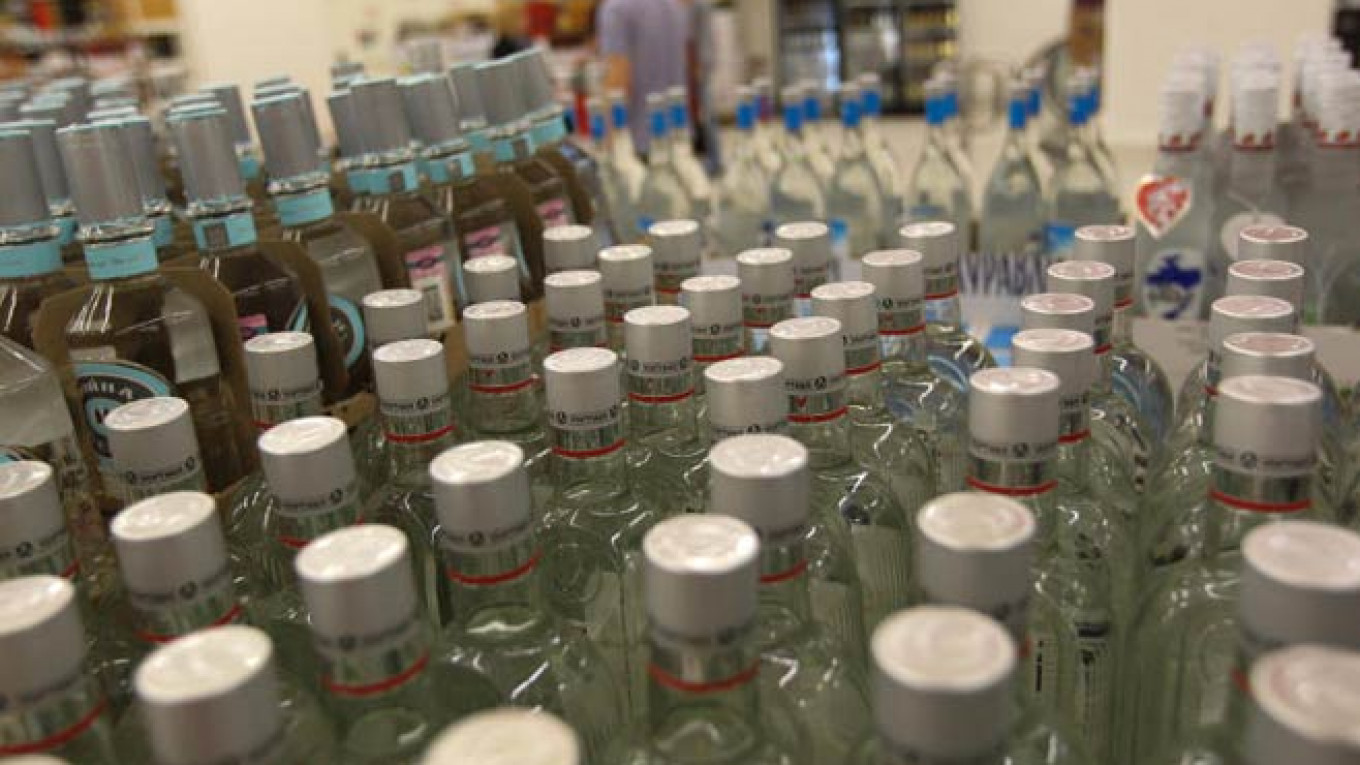Legal vodka production plummeted nearly 17 percent in the first quarter this year under the weight of a state-enforced price increase and a flourishing illegal market, Kommersant reported Tuesday, citing Rosstat data.
Illegal vodka accounted for 55 percent of the entire vodka market in 2013, Igor Kosarev, vice president of distiller Russky Standart, told Kommersant.
"Given the trend that we see now, by the end of the year this share will increase to 64 percent," Kosarev said.
Just as illegally produced vodka is increasing, there is an "avalanche of stores now selling alcohol without a license," said Alexander Mechetin, CEO of alcohol producer Synergy.
Sixteen percent of stores selling alcohol in large Russian cities do not have the necessary license, according to recent research by Infoline market analysts.
The legal market has lost even more business since the state increased the minimum retail price of vodka from 170 rubles ($4.72) to 199 rubles for a half-liter bottle on March 11.
Sales of legal vodka in the lower price segment "have noticeably decreased" since that time, said Vadim Drobiz, director of the Research Center for Federal and Regional Alcohol Markets.
The situation could be further exacerbated on Aug. 1, when the minimum price will go up to 220 rubles for a half-liter bottle.
Producers of other alcoholic drinks also cut back production in the first quarter: production of Russian brandy fell nearly 21 percent to 1.3 million decaliters, while table wine fell 14.5 percent to 6.3 million decaliters and sparkling wines fell 15 percent to less than 2 million decaliters.
Isaac Sheps, chairman of the Union of Russian Brewers, predicted late last year that the beer market could shrink 25 to 30 percent in 2014, Vedomosti reported.
The market has been struck in recent years by bans on advertising alcohol in the streets, Internet and mass media, and another last year which prohibited selling alcohol after 11 p.m. and banned beer sales from street kiosks.
A Message from The Moscow Times:
Dear readers,
We are facing unprecedented challenges. Russia's Prosecutor General's Office has designated The Moscow Times as an "undesirable" organization, criminalizing our work and putting our staff at risk of prosecution. This follows our earlier unjust labeling as a "foreign agent."
These actions are direct attempts to silence independent journalism in Russia. The authorities claim our work "discredits the decisions of the Russian leadership." We see things differently: we strive to provide accurate, unbiased reporting on Russia.
We, the journalists of The Moscow Times, refuse to be silenced. But to continue our work, we need your help.
Your support, no matter how small, makes a world of difference. If you can, please support us monthly starting from just $2. It's quick to set up, and every contribution makes a significant impact.
By supporting The Moscow Times, you're defending open, independent journalism in the face of repression. Thank you for standing with us.
Remind me later.






